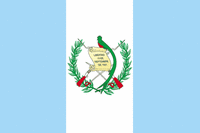Guatemala: Latest election no laughing matter
On October 25, former comedian and television celebrity Jimmy Morales won Guatemala’s presidential election after a rising anti-corruption citizens’ movement helped bring down President Otto Pérez Molina. The underlining challenges and the political views of Jimmy Morales signal major troubles ahead.
On October 25, former comedian and television celebrity Jimmy Morales won Guatemala’s presidential election after a rising anti-corruption citizens’ movement helped bring down President Otto Pérez Molina. The following article, published in the November-December 2015 NewsNotes, was written by Sustainable Pathways to Peace and Security intern Nicholas Alexandrou.
After running under the campaign slogan of “neither corrupt nor a thief,” professional comedian and newly-elected Guatemalan President Jimmy Morales has much to live up to.
Despite having never held public office – aside from his fictitious portrayal in “Un Presidente de a Sombrero” – his outsider persona attracted many voters who are clearly tired of the institutional corruption by career politicians. However, the underlining challenges and the political views of Jimmy Morales signal major troubles ahead.
Guatemala not only faces poverty and inequality – according to the World Bank, 50 percent of the population lives in poverty, with higher rates among indigenous communities – but a recent report by the Central American Institute for Fiscal Study found that 29 percent of the country’s total budget is allocated in areas exposed to corruption and that as much as six percent of the annual budget goes unaccounted for.
Currently, the single-chamber Guatemalan National Congress holds no clear majority and will require a coalition to pass legislation. While former candidate Manuel Baldizon failed in his bid for the presidency, his party, the Democratic Renovation Party (LIDER), now represents the largest faction in the Congress with 44 seats. Sandra Torre’s National Unity of Hope Party (UNE) represents the second largest faction with 36 seats. Morales will find forming a coalition challenging, especially as he attempts to foster working relationships with former antagonists.
The new president’s views on security and indigenous issues raise major concerns. Coming from a right-wing perspective, his nationalistic and hardline rhetoric comes across as “more of the same” rather than a “breath of fresh air.” His support of the “zero-tolerance” approach to gang activity, commonly known as mano dura (heavy hand), may signal an ongoing desire to continue hardline security policies. Morales also denies that the genocide occurred against the indigenous lxil people during the rule of former president Gen. Efrain Rios Montt. (See box below.)
Morales is a member of the Convergence National Front (FCN) party, which is run and financed by right-wing former military officers, including those in power during the three-decade civil war, when more than 200,000 people were killed by the military. Close associates of Morales include Col. Cesar Augusto Cabrera Mejía and Édgar Justino Ovalle Maldonado (current leader of the FCN party), both of whom directed intelligence in the Alta Verapaz department capital of Cobán between 1982 and 1983, where more than 316 skeletons have been exhumed from a series of mass graves.
Morales’ political inexperience and close association with right-wing members of society raise concerns that he may look for guidance from military officers and nationalists within the FCN. It will come as no surprise if the new government finds a way to formulate a coalition with the right-wing LIDER party, which caucused with the now deposed president Oscar Perez Molina’s Patriotic Party. In many ways, it could easily be a situation whereby it is meet the new boss, same as the old one.

